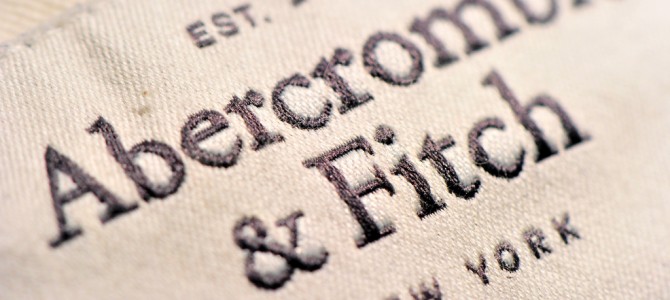The Supreme Court ruled this week in a favor of a Muslim woman in Oklahoma who was denied a job at Abercrombie & Fitch because she wore a hijab.
Religious liberty advocates have celebrated the ruling as a victory and CNN’s legal analyst Jeffery Toobin claimed that the case proves the Supreme Court has unleashed its “inner libertarian.”
Sounds like SCOTUS got the law right. It also sounds like it’s preposterous for Abercrombie not to hire someone like Samantha Elauf. But while it may be the correct decision, it has nothing to do with religious freedom or a rediscovery of the “libertarian roots of the Bill of Rights,” as Toobin claims.
Specifically, Abercrombie argued that it hadn’t violated Title VII of the Civil Rights Act by failing to accommodate Elauf’s religious beliefs because Elauf had not first shown that the employer had “actual knowledge” of her need for a religious accommodation. But the Court disagreed, and found that she could sue the company. That’s fine.
Abercrombie has a “look policy” that prohibits employees from wearing black clothing and headwear. It rates prospective employees on how they dress. A number of retail chains have similar fashion codes for obvious capitalistic reasons. Abercrombie & Fitch was not, as far as any evidence has suggested, driven by racial or religious animosity in their decision making. The dress code applied equally to employees of every race and religion hired by the chain – a chain that would likely be just as reluctant to hire Hasidic Jews or the Amish to sell their causal preppy clothing. It’s about aesthetics – which trend strongly towards shirtless teens – and intolerance to headwear.
But even if Abercrombie was prejudiced in its hiring, the case becomes a matter of discrimination, not religious liberty. No one at the clothing retailer inhibited Elauf from practicing her religion freely. Until this week, in fact, being employed at Abercrombie & Fitch was not even a constitutional right. Yet, for some reason, the Atlantic’s David Graham contrasts this case with the hijab ban in France and the imaginary widespread American intolerance towards Islam – anchored by that fantastical-sounding Tahera Ahmad story we’ve been hearing so much about. The fact is, there’s no evidence that the Abercrombie’s manger knew the difference between a Sikh or Muslim or any other denomination that requires head covering, for that matter. But let’s not have facts stop us.
Toobin also points to the French government’s ban on head scarves, which he explains was implemented, in part, because of that nation’s “bitter experience with clerical control of government before the French Revolution.” Well, Belgium has a similar ban, as do cities in Spain and elsewhere Europe. Those states and municipalities argue that the face plays a significant role in social contact and that governments have a duty to shape the terms of social interactions among its citizens. A position that sounds awfully familiar.
Toobin then writes this:
Fortunately, the United States has avoided these sorts of experiences and has chosen a path, for the most part, of forcing the government to the sidelines on these issues.
How is government sitting on the sidelines, exactly? Isn’t the Equal Employment Opportunity Commission a government agency? Isn’t it the one forcing Abercrombie & Fitch to hire people who do not adhere to their dress code?
And, by the way, isn’t it government that’s forcing florists and photographers to participate in ceremonies that conflict with their religious beliefs? Isn’t it government that’s trying compel companies to purchase birth control for their employers, an act that directly contradicts their beliefs? Government is not on the sidelines when it comes to Little Sisters of the Poor.
And wasn’t it Toobin who argued that those who chose not to cater those gay weddings because of their own religious objections were acting “precisely parallel” to those who implemented Jim Crow? Toobin does not support religious freedom, he supports government making sure that businesses make accommodations for Muslims.
But there’s a fundamental distinction between Elauf and the florists, photographers and pizza shop owners that Toobin likens to racists: they have no real choice. Those Christians he derides have been impelled by government agencies to comply or go out of business. Hobby Lobby had to fight the Obama Administration to opt out of policy that coerced it to participate in a plan that conflicted with its well-established religious beliefs. Elauf, on the other hand, had thousands of other choices. In the Abercrombie case, it is Elauf who is imposing her beliefs on a business that must now pay her and accommodate others like her. Maybe it’s the right thing to do, but it has nothing to do with religious liberty.









